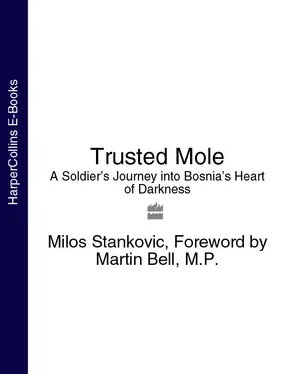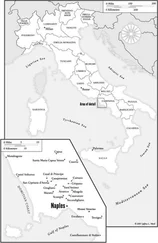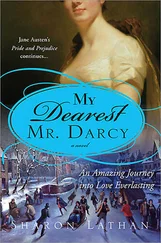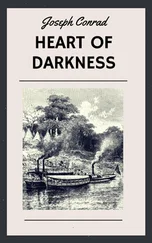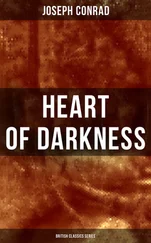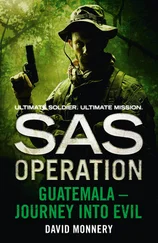‘She was eventually demobbed and returned to England to join her mother, sisters and brother, who were also now “out”. They lived for a while in Godmanchester in Cambridgeshire. Mum did Russian at the School of Eastern European and Slavonic Languages and even got a job as an interpreter in the 1948 London Olympics. Grandmother’s health wasn’t good, though. It was a combination of ill-health and poor English weather which forced them to emigrate to Rhodesia. They bought ten acres just north of Salisbury, built a house and settled down to grow flowers. My grandmother died in 1957, well before I was born. I never knew her, nor my grandfather who was left behind in Yugoslavia and died before the end of the war. In fact I never knew any of my grandparents, not even on my father’s side – all because of the last war really.’
‘And you end up in Bosnia fifty years later with the UN.’
‘Correct. Three generations, all fiddling around in the Balkans during three different wars. A novelist couldn’t have written that one.’
‘I suppose you’re going to tell me that your father was in the UN as well.’ Ian’s laughing.
‘No. That side of the story’s quite different. There are parallels with my mother’s side of the family, but nothing as grand and aristocratic. His father also fought on the Salonika front in the First World War, but as a warrant officer in the artillery. But that’s not to say he was a peasant or anything like that. In fact he was an agricultural specialist who’d been university trained in Prague before the War. They came from a small village in Sumadija called Mrcajevci, in Central Serbia. No great connections at court. My father was born in Kraljevo in 1920. His mother died when he was very young and he was brought up by his two older sisters, the eldest of whom was killed during an Allied bombing raid in 1943. He was educated in Skopje in Macedonia where he was studying law when the Germans invaded. He’d been politically active throughout the 1930s and had been a staunch anti-Communist and supporter of the King.
‘When the Germans invaded King Peter fled to London in April 1941 and set up a government in exile. The likes of my father stayed on to fight. You could write a book about what went on in Yugoslavia during the war and still not understand it. Although the Germans occupied the Balkans and fostered Fascism in Croatia, which included in those days all of Bosnia and Hercegovina, they were quite happy to allow the locals to fight it out amongst themselves in a bloody civil war. My father joined the Serbian Volunteer Corps, a Royalist outfit fighting Tito’s Communists. He was one of the original volunteers. By the end of the war he was a company commander in an infantry regiment. The commanding officer of his battalion, Ratko Obradovic, eventually became my godfather but was assassinated in an underground car park in Munich in 1968 by Tito’s UDBA assassins.’
‘Assassinated!’
‘That’s right. Tito couldn’t tolerate anti-Communist opposition from the émigré community, so he had them murdered. The Royalists and Chetniks, under Draza Mihajlovic, were forced to fight a rearguard action withdrawing from Yugoslavia. Some went north to Austria, others, like my father’s battalion, went west into Italy. In fact, his war ended on 5 May 1945 when he conducted the last bridge demolition guard of the war. They were holding the bridge over the river Soca, which marked the border between Slovenia and Italy. The bridge had been prepared for demolition and my father’s company was on the Slovenian side holding that end of the bridge in order to allow as many refugees as possible to get across into Italy. Russian tanks eventually appeared and they were forced to leg it over into Italy and blow the bridge. End of his war.
‘The next day they handed over their weapons to the British in Palmanova and were then carted off to a concentration camp at Eboli, south of Naples. No one really knew what to do with these people so they stayed in that camp for the best part of two years before being moved to other camps in Europe. My father was moved to one near Munich where, in 1947, he was selected by the British as suitable for labour in Britain. The Belgians had already rejected him. At the end of 1947 he stepped off a refugee ship at Southampton docks. No socks, no money and not a word of English. Each person was given a pound as they stepped off the gangplank; my father remembered his first purchase, a pair of socks, and his first meal, fish and chips, wrapped up in newspaper. I remember him laughing about this, how shocked and horrified that such a cultured people could eat their food with fingers from newspaper.
‘The deal for all these displaced people from Eastern Europe was simple. Three years labour in exchange for the right of abode but not citizenship. For three years my father, ex-law student, ex-officer, was a hod carrier at the London Brick Company factory in Bedfordshire. That did his back in. Still couldn’t speak a word of English and by the time he’d worked off his obligation to the British government he still wasn’t integrated into society in any way. To put that right he lived with an English family in Ealing and gradually learned the language. He also put himself through night school and taught himself electronics. By day he swept the floors of the Rank Bush Murphy television and radio factory at Chiswick. By night he studied for his degree. By the end of the 1950s he’d qualified as an electrical engineer and was employed by Rank as a TV design engineer.’
Ian’s puzzled by something. ‘But I thought your mother’s lot were in Rhodesia by this stage. How did your parents meet?’
‘In 1960 Rank sent him out to Southern Rhodesia to help set up the black and white TV system there. He and my mother met in Salisbury and they married in the Greek Orthodox church. I was born in 1962, my sister fifteen months later. Then, in 1965, Ian Smith declared UDI. My father sniffed another war and wanted no part of it whatsoever. You could hardly blame him. Branko, my maternal grandfather’s younger brother, was lost in Russia during the civil war. My mother’s father died in 1943 in Yugoslavia. My father never saw his father again after 1945 – he died in 1957 in Serbia. That’s why they decided to leave Rhodesia before things got worse.
‘We returned to London but most of my cousins stayed on in Rhodesia and fought their Communists in that war. In fact, we’ve still got the property in Harare. Mum’s eldest sister, the one who worked in SOE Cairo, lives there, has a beautiful house.
‘My father continued working for Rank in Chiswick. I received a pretty bog standard education. They pumped every penny they could into it; prep school in Leicestershire, minor public school in the West Country where I was head boy and head of the Combined Cadet Force. Father, of course, wanted me to be what he never was – a lawyer. I had other ideas. The day after my last A level – I did Latin, Greek and Ancient History – I walked into the Army recruiting office on Mayflower Street in Plymouth and enlisted in the Parachute Regiment. My father hit the bloody roof. Real drama.’
‘Drama?’
‘Like you wouldn’t believe. But you’ve got to see it from his point of view. So many upheavals, so much misfortune in both families for so long, it’s hardly surprising that the one thing he wanted for me was security. But you’re wilful at that age. At eighteen you know best and he just had to live with it.’
Ian has been listening patiently, only asking one or two questions.
‘Why didn’t your father return to Yugoslavia after the war?’
‘Oh, that’s because of the code.’
‘What code?’
‘There was an unwritten code, a rule, among the émigrés. There was to be no returning to Yugoslavia while Tito and the Communists were in power, not for any reason whatsoever. Some weakened towards the end of their lives and went back. He never did. A die-hard to the day he died. I suppose it was because of the assassination of my godfather. He didn’t even go back when his own father died. None of us did, except my mother who’d trip out there every couple of years to look after Dad’s sole surviving sister, Bisenija. She’d been declared “mad” and an “enemy of the state” by the Yugoslav authorities; she had no state pension, so we had to keep her alive from the UK.’
Читать дальше
